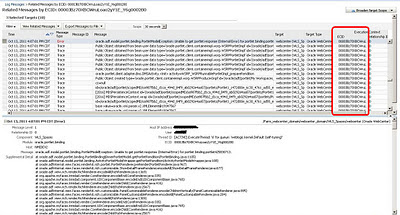Hi,
I am presenting a free webinar "ADF Task flows for Beginners" for ODTUG on December 1, 2011. The details are as follows. Feel free to register and spread the message
I hope that this session will answer lot of questions for up ADF newbies as well as help ADF community to grow.
December 1, 2011 3:00 PM - 4:00 PM EST
ADF Task Flows for Beginners
Zeeshan Baig, Northwestern Memorial Hospital
ADF Task flow is most important and essential feature of ADF development which makes ADF unique in the battle of frameworks. This session will help you to understand different components and techniques to build task flows as well as building static and dynamic regions on JSF pages.
During this session we will dive into the following:
1. Understanding different components to build task flows.
2. Building task flows templates.
3. Building static and dynamic regions.
4. Basic techniques to build reusable task flows.
Registration Web Link: https://www3.gotomeeting.com/register/133729022
I am presenting a free webinar "ADF Task flows for Beginners" for ODTUG on December 1, 2011. The details are as follows. Feel free to register and spread the message
I hope that this session will answer lot of questions for up ADF newbies as well as help ADF community to grow.
December 1, 2011 3:00 PM - 4:00 PM EST
ADF Task Flows for Beginners
Zeeshan Baig, Northwestern Memorial Hospital
ADF Task flow is most important and essential feature of ADF development which makes ADF unique in the battle of frameworks. This session will help you to understand different components and techniques to build task flows as well as building static and dynamic regions on JSF pages.
During this session we will dive into the following:
1. Understanding different components to build task flows.
2. Building task flows templates.
3. Building static and dynamic regions.
4. Basic techniques to build reusable task flows.
Registration Web Link: https://www3.gotomeeting.com/register/133729022
















